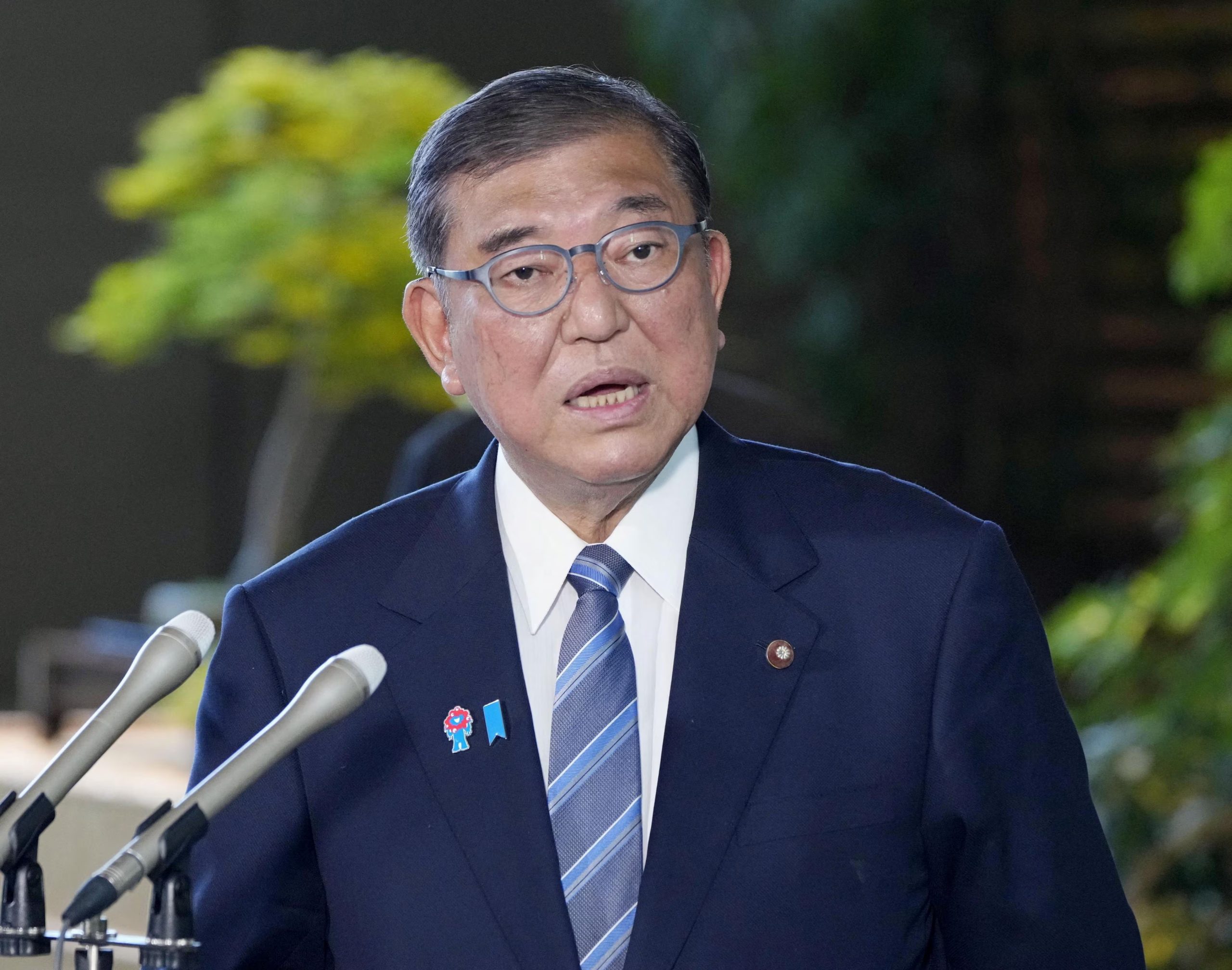Japanese Prime Minister Shigeru Ishiba has rejected reports suggesting he is preparing to resign following a major electoral defeat suffered by his ruling Liberal Democratic Party (LDP) over the weekend.
Instead, Ishiba emphasized his intent to stay in office to ensure the smooth execution of a newly signed trade agreement with the United States.
The speculation gained traction after The Yomiuri Shimbun published an extra edition on Wednesday claiming Ishiba was planning to step down by the end of July.
The newspaper cited unnamed sources, saying Ishiba would wait for a detailed briefing from chief trade negotiator Ryosei Akazawa before announcing his departure, triggering a leadership race within the LDP.
However, addressing the media at party headquarters the same day, the 68-year-old prime minister flatly dismissed the reports. “I have never made such a statement,” Ishiba said.
“The facts reported in the media are completely unfounded.”
The resignation rumors followed Ishiba’s unveiling of a bilateral trade agreement with U.S. President Donald Trump on Tuesday.
The deal, which reduces tariffs on Japanese automobile exports to the U.S. from 25 percent to 15 percent ahead of an August 1 deadline, was presented as a win for Japan’s economy.
Ishiba described the negotiations as tough but necessary, claiming the agreement would stimulate job creation and investment on both sides of the Pacific.
Despite the deal, political pressure continues to mount.
The LDP, along with its junior coalition partner Komeito, lost its majority in the 248-member upper house of Japan’s parliament in Sunday’s election.
This followed a similar loss of control in the more influential lower house back in October, significantly weakening the government’s legislative power and deepening political instability.
Ishiba had already declared on Monday that he had no plans to resign, emphasizing that Japan needs continuity to navigate key issues like trade negotiations with the U.S.
Still, critics within and outside his party argue that a leadership change is necessary in light of the electoral results.
The LDP’s loss marks a significant shift in Japanese politics.
The party has been the dominant force in government almost without interruption since 1955, shortly after the end of the U.S. post-war occupation.
Now, emerging political challengers—many from the right—are gaining traction.
Disenchanted voters, particularly younger ones frustrated by rising costs and stagnant wages, turned to newer conservative parties in the recent election.
Groups such as the Democratic Party for the People and the nationalist Sanseito party made notable gains, drawing support away from the ruling coalition.
The frustration is also rooted in perceptions that the government prioritizes older voters at the expense of the younger generation.
Coupled with economic stagnation and a simmering LDP funding scandal, the dissatisfaction has created a volatile political atmosphere.
“I really hope things will get better in Japan, but the population is declining, and I think living here will become tougher,” said Naomi Omura.
Omura is an 80-year-old Hiroshima resident, in an interview with AFP.
While she expressed disappointment over Japan’s perceived lack of leverage in negotiations with the U.S., she welcomed the reduction in tariffs, calling it a positive outcome under the circumstances.
The trade deal has sparked debate among economists and political analysts.
Seijiro Takeshita, a dean at the University of Shizuoka, questioned the long-term benefits of the agreement for Japan, urging observers to look beyond the numbers.
Critics argue that while the tariff reduction may provide short-term relief, it does little to shift the balance of power in Japan’s trade relationship with the United States.
As Ishiba tries to fend off internal dissent and opposition pressure, questions remain about the LDP’s future direction.
Although opposition parties have not yet proposed a unified coalition to challenge the government, they have indicated a willingness to collaborate on select policy issues.
If Ishiba does ultimately step down, despite his current denials, it would set the stage for a power struggle within the LDP.
This is as it faces a rapidly changing political landscape and growing competition from emerging parties.
For now, however, Ishiba appears committed to staying in office to manage the fragile trade and political situation.







